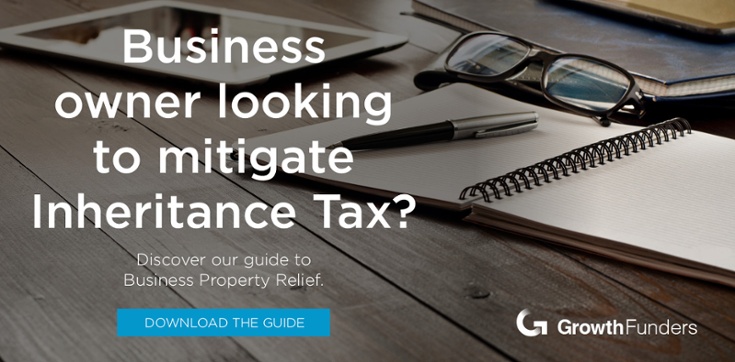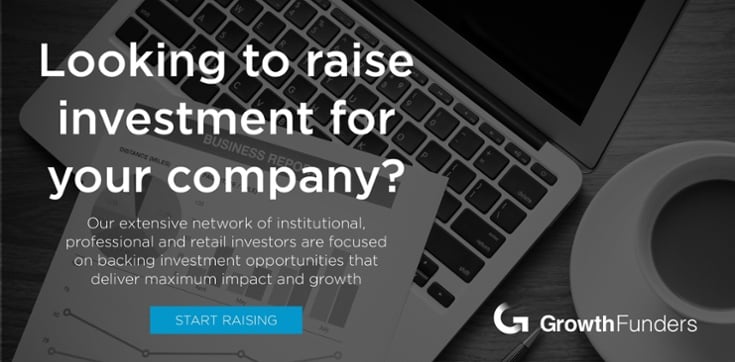Entrepreneur looking to raise venture finance? How do you value your business?
Ready to raise venture finance?
So, you have taken the lead and you are ready to pitch your great business idea. You know what you want to achieve, the path and plan to get you there and you know that you need investment to help you succeed.
You’ve explored all of the options available to you and have decided that you would like raise equity finance to execute your growth stategy.
One of the fundamental decisions you need to make is how much equity are you going to trade and balance that against the amount of capital you are aiming to secure.
And for entrepreneurs and investors there’s the rub...
Often, entrepreneurs raise venture finance for start-ups or or early stage businesses and traditionally, placing a value on businesses at this stage is more of an art rather than a science – it's a merging of the stances of both entrepreneur and investor.
Some experienced investors have a very detailed view of what their investment criteria are and it is so embedded that they are able to place a value on a business quickly and easily.
When setting out to raise venture finance, valuation can be one of the very first hurdles at which aspiring (and experienced) entrepreneurs fall.
One of the preliminary exercises any potential investor will undertake when considering a proposal is that of equity stakes against investment requested and the business valuation figure that that delivers.
Entrepreneurs - how do you value your business?
So how exactly do you place a valuation on your business? To you the business opportunity has fantastic growth potential, you have assembld a great team, you have a disruptive business model, your product or service addresses a real problem in a growing market and your solution has a competitive advantage, but do potential equity investors share your view?
Hopefully they do! But how do you place a realistic value on the business that will appease to you and appeal to potential investors?
There is a plethora of literature, software models, business consultancy practices and advisors out there to take you down various and diverse routes to valuation.
But how relevant and accurate are they in reality? Often valuation values are calculated in the most rudimentary of manners – baseline calculations sketched out without so much as a spreadsheet in sight.
Be under no illusions however, although often realised via basic means (by skilled investors), valuation is actually quite complex and driven by minutiae – sounds contradictory we know, but it’s true.
When raising venture finance different factors influence the business valuation
The reason that a ‘one size fits all’ approach is not suitable for business valuation purposes is because it depends upon so many differing factors and each business proposition will be its own unique mix of those elements.
For example, type of company, quality of earning, business sector, growth rates, predictability, prevailing business climate – many of which are elusive in exact measurement for valuation purposes.
To expand...
- MARKET CONDITIONS: Some companies, their products and/or services may be in great demand. Sectors are also prone to ‘fashion waves’ i.e. certain sectors are periodically perceived to be more attractive than others. If you happen to operate in a ‘sexy’ sector, valuations can peak in line with demand.
- VALUATION PRINCIPLES: In financial terms, valuation principles are, by rule of thumb, relatively simple – the present value of the future income stream.
- PREDICTABILITY: Again, very difficult to nail down – and hugely relevant in the start up and early stage business arena. A management team may be confident of achieving a predicted level of growth, for example, but in order for a valuation to ‘have legs’ it is essential that this optimism is shared by investors.
- CUSTOMER SPREAD: The spread of your income across your customer base can also affect the valuation of your business. We are all familiar with the ‘eggs in one basket’ principle and if too large a proportion of income is derived from a smaller number of customers, the risk element perceived may have a detrimental effect on any valuation proposed.
- PRE-PROFITABILITY: What do you do if your business is in its infancy and has not yet had sufficient time elapse to provide proof of worth and profitability? This is an area where differing opinions as to the prediction of future financials can affect valuation figures and settlement of a reasonable number.
- LACK OF REVENUE: In some instances a business may not even have reached the revenue stage – in which case a valuation is going to be determined solely on predictions and perceived future value – once more, a subjective evaluation in terms of financial worth reliant on an acknowledgment of what is fair, realistic and achievable. In this arena valuation takes on much more of an art form as opposed to a scientifically-driven model.
- COMPARABLES: Used every day by professional analysts and investors, comparables view valuations in the context of other companies of a similar type and nature.
When all of that is said and done and taking all of the above into consideration, what, then, is the best course of action in order to put a fair, reasonable and accurate value on your business?
We would suggest that you take all of the aforementioned into account and adjust according to your business.
Seed stage valuations
A general ‘rule of thumb’ for seed stage businesses (i.e. those that are pre-revenue) is to offer between 10 and 40 per cent of equity in exchange for investment. How much equity a seed stage business can attract in exchange for 10 to 40 per cent of the business will depend upon a range of different factors listed previously, together with others such as the quality of the management team, intellectual property etc.
For example, seed stage businesses that are looking to raise £100k in exchange for 10% equity would be valued at £1m post-money; one seeking £100k in exchange for 40% would equate to a post-money valuation of £250k (i.e. £100k divided by 40%). It is very important that to get this right when seeking investment.
Early stage valuations
Early stage businesses that are revenue generating and which have addressed a genuine problem in the marketplace are often viewed as being more attractive to investors as they, theoretically, pose slightly less risk and may therefore command a higher valuation.
Established businesses with a proven track record and trading history that have a strong team, defensible IP (intellectual property) et al tend to command a higher valuation again.
Be realistic
Remember, valuation is not an exact science – be realistic, view the proposition from the perspective of the would-be investor – they are providing the risk capital and balance is essential – with the most suitable investment, you can focus on building a great business. After all, owning a smaller proportion of something big is, ultimately, much better than owning 100% of nothing at all!
And finally...
The proof of the pudding is often in the eating – this is where crowdfunding benefits come in to play – if your calculations are ‘on the money’ you will find potential investors flocking to you, if they aren't, it is unlikely that your project will reach the ‘close out’ stage as investors may shy away from the opportunity because they don’t believe the projections and ensuing valuation to be viable.
%20(3)%20(2).jpg)






